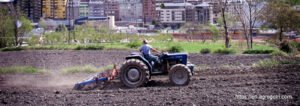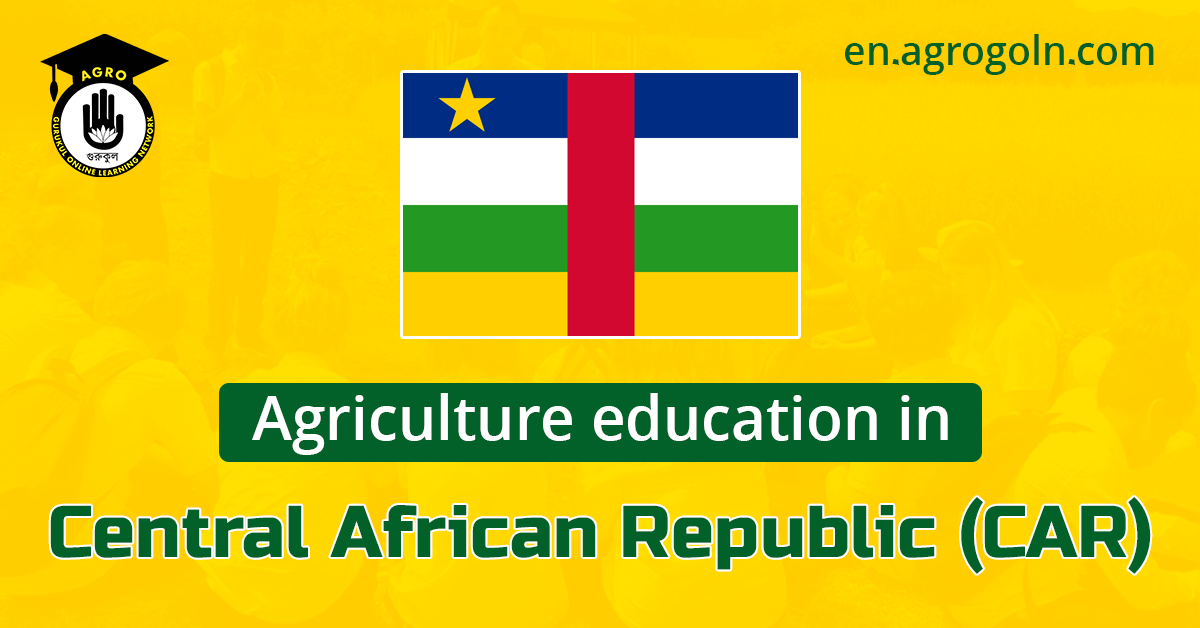The Central African Republic (CAR) is a landlocked country in the heart of Africa, with an economy heavily reliant on subsistence agriculture. More than 80% of the population depends on farming for their livelihoods. Despite agriculture’s critical role in the country, the Central African Republic has historically faced numerous challenges in improving its agriculture education, including the impacts of conflict, low investment, and systemic issues in its education system. However, despite these challenges, there are significant efforts to boost agricultural education, with a focus on sustainable farming practices, technological innovation, and community development.
Table of Contents
Agriculture Education in the Central African Republic (CAR)
Overview of the Education System in CAR
Understanding the broader context of the education system in the CAR is crucial to understanding the challenges and opportunities in agricultural education. The CAR has one of the lowest literacy rates globally, with just over a third of adults literate as of 2021. This is a reflection of the country’s systemic challenges in providing quality, accessible education to all its citizens. Education is compulsory up to the age of 15, but many children do not attend school due to poverty, conflict, and a lack of resources.
The country has a broad range of educational institutions, from primary schools to universities. The University of Bangui, founded in 1969, is the country’s primary institution of higher learning. However, there are also vocational and technical schools that provide more practical skills-based education, including agricultural education.
Despite these institutions’ efforts, the Central African Republic’s education system faces several challenges. The persistent conflict in the country has led to frequent disruptions in education, with schools often being targets of violence. Furthermore, a lack of funding, infrastructure, and qualified teachers has resulted in poor educational outcomes and high dropout rates.

Agriculture Education in CAR: The Status Quo
Agriculture education in the CAR traditionally takes place in both formal and informal settings. In formal settings, such as schools and universities, agriculture education typically covers basic principles of agriculture, including crop cultivation, animal husbandry, and natural resource management. In informal settings, farming communities pass on knowledge and skills through mentorship and hands-on experience.
However, despite agriculture’s importance to the CAR’s economy, formal agricultural education has often been neglected. A lack of funding, qualified teachers, and adequate learning materials has limited the quality and reach of agricultural education. Moreover, agriculture is often perceived as a less prestigious field of study compared to others, reducing its appeal among young people.
A key challenge in agriculture education in the CAR is the gap between the skills taught in schools and the skills needed in the field. Traditional agricultural education often focuses on conventional farming techniques, while neglecting modern, sustainable practices. This gap is exacerbated by a lack of access to modern technologies, such as digital tools for data collection and analysis, which could help farmers improve productivity and sustainability.
Innovations and Opportunities in Agriculture Education
Despite these challenges, there are significant efforts to improve agricultural education in the CAR. One of these initiatives is the introduction of practical, community-based agriculture education. This approach involves integrating farming practices into the school curriculum, enabling students to learn by doing. This not only improves students’ agricultural skills but also helps to foster a sense of community and responsibility towards the environment.
Additionally, international organizations, such as the Food and Agriculture Organization (FAO) and the World Bank, have launched projects to improve agricultural education in the CAR. These projects focus on providing quality learning materials, training teachers, and improving school infrastructure. Moreover, they aim to promote sustainable farming practices, such as agroforestry and conservation agriculture, which can help to improve productivity and resilience to climate change.
Another promising development is the introduction of digital technologies in agriculture education. Although internet access is limited in the CAR, initiatives are underway to provide rural schools with offline digital learning resources. These resources, which include video tutorials and interactive simulations, can help students to learn about modern farming techniques and technologies.

The Role of Women in Agriculture Education
Women play a critical role in agriculture in the CAR, making up over half of the agricultural workforce. However, they often face discrimination and have fewer opportunities for education and training. Promoting gender equality in agricultural education is therefore a key priority for development in the CAR.
Initiatives to promote women’s participation in agriculture education include offering scholarships for women to study agriculture, providing women-only training programs, and including gender equality topics in the curriculum. Additionally, efforts are being made to challenge harmful cultural norms that limit women’s participation in agriculture, such as stereotypes about women’s roles and capabilities.
The Way Forward
Improving agricultural education in the CAR requires a multi-faceted approach. First, it is essential to invest in the country’s education system, improving infrastructure, training teachers, and providing quality learning materials. This should include a focus on practical, community-based learning, which can help students to develop the skills they need to succeed in agriculture.
Second, it is crucial to integrate sustainable farming practices into the curriculum. This includes teaching students about agroforestry, conservation agriculture, and other methods that can help to improve productivity and resilience to climate change.
Third, there is a need to increase the use of digital technologies in agriculture education. Despite challenges in terms of access and connectivity, digital tools can greatly enhance the quality of agriculture education, enabling students to learn about modern farming techniques and technologies.
Finally, it is vital to promote gender equality in agricultural education. Women play a crucial role in agriculture in the CAR, and ensuring they have equal access to education and training opportunities is essential for the sector’s development.

Conclusion
Agricultural education in the Central African Republic faces numerous challenges, from the impacts of conflict and low investment to systemic issues in the education system. However, there are also significant opportunities for improvement, including the introduction of community-based learning, the promotion of sustainable farming practices, the use of digital technologies, and the empowerment of women. With the right strategies and investments, agriculture education in the CAR has the potential to drive economic growth, improve food security, and build a more sustainable future for the country.
See more:
